SUMMARY
This is AI generated summarization, which may have errors. For context, always refer to the full article.
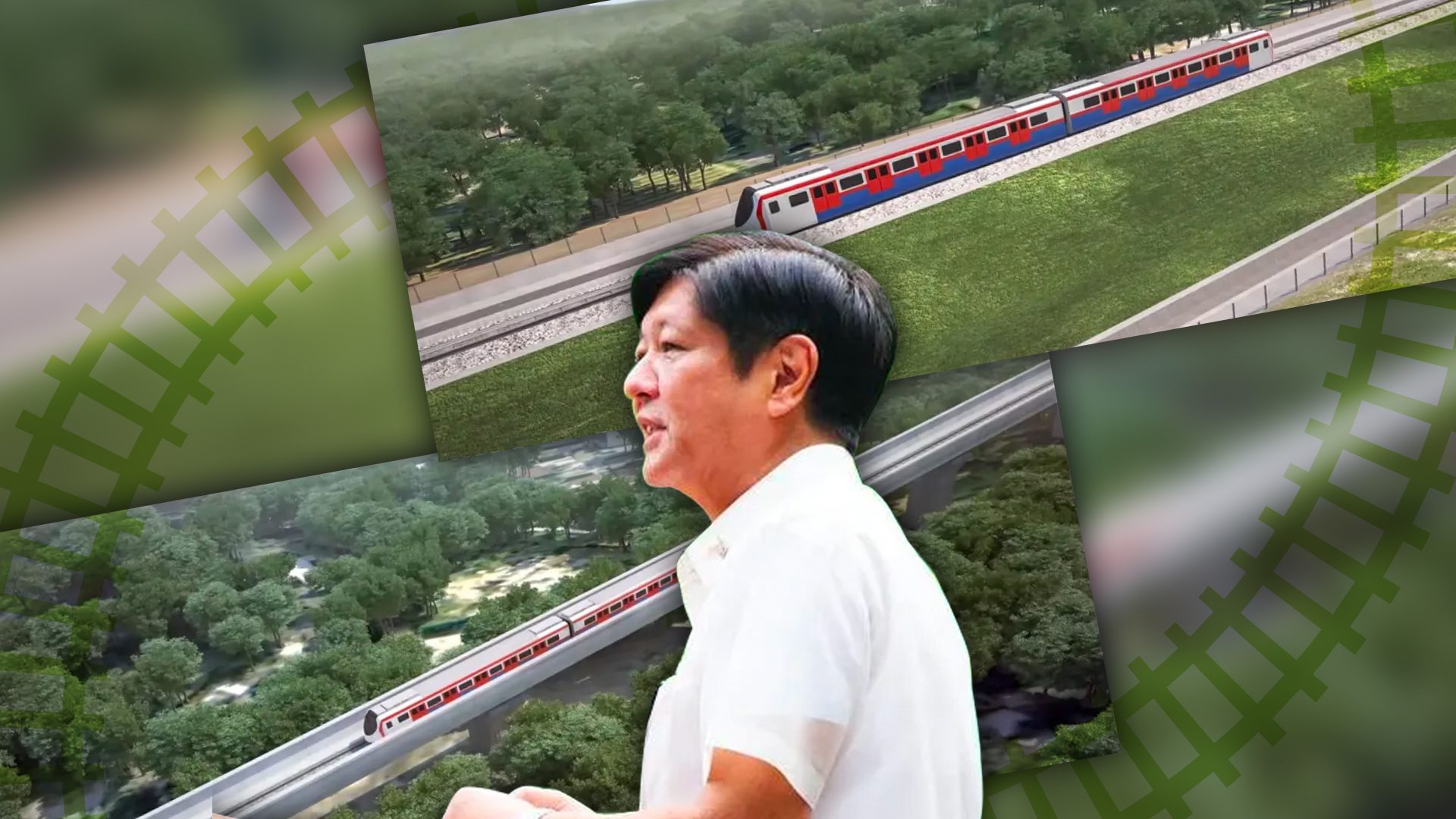
AT A GLANCE:
- The Department of Transportation pins the blame on China for the stalled railway projects. But corruption in land acquisitions has long stonewalled projects.
- The new administration must remain extra cautious in dealing with Beijing, as experts found that its loan terms have unusual clauses and higher interest rates.
- President Ferdinand Marcos Jr. can tap public-private partnership financing, but his team has to woo private investors after they were somewhat shunned by his predecessor.
MANILA, Philippines – President Ferdinand Marcos Jr. is set to renegotiate loan terms with China for railway projects worth $4.9 billion (P276 billion).
The Subic-Clark Railway Project (P51 billion), the Philippine National Railways South Long-Haul Project (P142 billion), and the Davao-Digos segment of the Mindanao Railway Project (P83 billion) have been on the pipeline for years, but have yet to be funded.
Transportation Undersecretary Cesar Chavez claimed that China “failed to act” on the official development assistance (ODA) funding requests made by then-president Rodrigo Duterte.
Why would China do this during what seemed to be the final step after years of negotiations?
The Department of Transportation’s track record and local politics point to some clues. The fine print on China’s loan conditions also hints of struggles in getting the trains up and running.
China’s terms
Under Duterte, the Philippines received the following loans and grants from China:
- P12.18-billion loan for the Kaliwa Dam project
- P19.32-billion loan for the Samal Island-Davao City bridge
- P5.9-billion grant for the Binondo-Intramuros and Estrella-Pantaleon bridges
- P4.4-billion loan for the Chico River Pump Irrigation Project
- P998-million grant for the Marawi City rehabilitation
Chinese money has helped realize various big-ticket infrastructure projects in developing countries. But issues on how it crafts contracts have been continuously brought up.
Beijing’s loan process is different from other countries, as it requires a project management consultant and a contractor to be locked in first before loan negotiations can begin. This issue was first brought up in a Senate hearing in 2019.
“For the Japanese ODA (Official Development Assistance) loan, the loan agreement is signed first before the bidding process. But with China, the bidding process comes before the loan agreement is signed,” said then-Bases Conversion and Development Authority president and chief executive officer Vince Dizon.
In the case of the Subic railway system, Dizon said that the Chinese government would have to give a list of accredited contractors first before the Philippine government can implement its own rules and choose contractors.
“The project is bidded out using the budget for the project approved by NEDA (National Economic and Development Authority) and goes through the typical bidding process. After the project has been awarded [to the bidder], then that amount is what will be negotiated by DOF (Department of Finance) in terms of payment,” Dizon told lawmakers.
In May 2022, the short list of contractors was brought up as the main issue for why the Mindanao railway project got stalled.
Then-transportation undersecretary for railways TJ Batan said that the Philippines requested the short list of contractors back in 2019, but China had yet to provide the candidates for the design-and-build contract for the P85-billion railway project.
The bidding-now-loan-terms-later policy was not the only issue that bugged legislators.
China, which accounts for 65% of bilateral debt among developing nations, has a reputation of wanting countries to sign waivers and settle disputes using Chinese laws. It also wants things under wraps through confidentiality clauses.
A paper by US-based research lab AidData revealed that China’s loan deals with developing countries are “unusually secretive,” even going so far as to ask repayment of Chinese loans first ahead of other creditors. (READ: Database reveals secrets of China’s loans to developing nations, says study)
With loan terms that are unlike that of the Philippines’ usual lenders, the Duterte administration was “extra careful” in dealing with Beijing.
“Given the various experiences already felt by the other countries that have already dealt with China, we are more cautious,” said then-socioeconomic planning secretary Ernesto Pernia.
Chinese loans also had higher interest rates. In a text message to Chavez, former finance secretary Carlos Dominguez III said that this was among the reasons why he opted to cancel the loan applications for the railway systems.
“I canceled application instead of keeping it in suspended animation. If you wish to pursue this, I understand that the Chinese financing agency will be asking for interest rates in excess of 3%,” Dominguez said in a text message to Chavez shown to reporters.
Other lenders like Japan offered ODA with an interest rate of 0.1% per annum. (READ: Made in China: Loan terms with waivers, shrouded in secrecy)
Philippine politics
While China’s loan terms and conditions contributed to stalling of the railway projects, local politics and corruption presented several boulders as well.
For the Mindanao rail project, Duterte’s son, Davao City Congressman Paolo Duterte, and then-ACT-CIS representative Eric Yap earlier sought a congressional probe into the DOTR’s road right of way issues.
In 2021, the two lawmakers said they received various reports about “variations in the offers for acquisition of road right of way or expropriation of the private properties by the DOTr and/or its contractors, sub-contractors, or other service providers.”
Paolo Duterte and Yap said that there were discrepancies in the market value of land needed for the Mindanao railway. The Davao City congressman said that there were people buying land at a low price, then would sell to the government at a higher price.
Was local corruption the reason why China was also cautious about doing business with the Philippines?
A white paper published by Alvin Camba, a sociologist whose work focuses on Chinese investments and development, found evidence of local elites stalling the Bicol railway project.
Camba found that oligarchs and local elites, including politicians, “contested land acquisition or wanted their own train stops.” President Duterte had to deal with local elites, as they had the right to oversee right of way issues.
“[R]egional-local elites are connected to or own the transportation system across Luzon, which relies on an interconnected bus system. This monopoly has been one of their biggest sources of rents since the demise of the Philippine railway company in the 1950s. In the 1990s, one of the most profitable forms of collaboration between Philippine oligarchs and regional-local elites has been the construction of bus terminals in provincial malls,” Camba said.
In an interview with a politician, Camba also found that business tycoons cautioned local politicians about the impact of the rail system on the environment and dislocation of residents, while concealing their business interests in the bus system. Read Camba’s white paper here.
Marcos’ infrastructure dreams
Marcos’ economic team is eyeing between P1.1 trillion to P2.4 trillion in infrastructure spending during his term, equivalent to 5.5% to 6.3% of the gross domestic product. They have yet to detail their infrastructure plans and how much would be allocated for railway projects.
In a recent Cabinet meeting, Marcos directed officials to “encourage more investments in rail.”
Chavez said that other than a possible renegotiation with China, funding from the private sector through public-private partnerships is on the table.
Given the country’s debt levels, he may need to do so.
Marcos inherited a tight fiscal space due to a bloated budget deficit and high debt. Last year, the deficit widened by 22% to an all-time high of P1.67 trillion, while debt is expected to breach the P13-trillion mark this year.
With various business and political interests at play, will the private sector or other countries dive in Marcos’ infrastructure push? – Rappler.com
Add a comment
How does this make you feel?
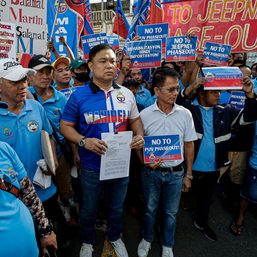
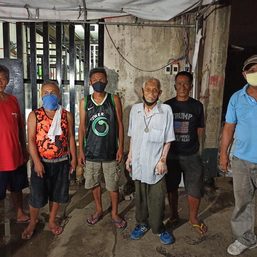
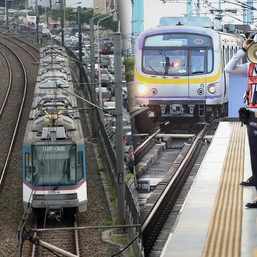

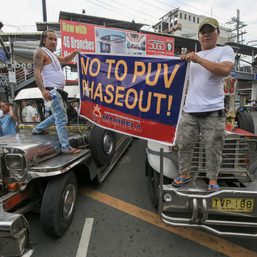
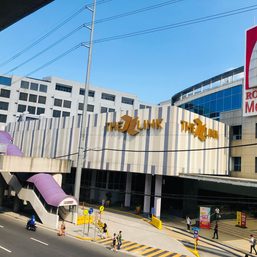

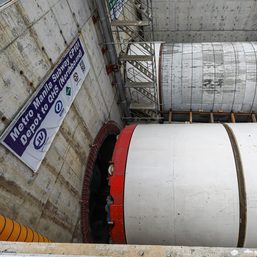
There are no comments yet. Add your comment to start the conversation.